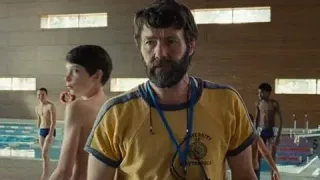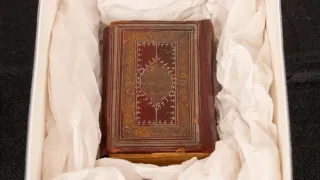March 23, 2021
Kataluna Enriquez Wins Miss Silver State USA as First Transgender Contestant
Kevin Schattenkirk READ TIME: 2 MIN.
Kataluna Enriquez has become the first transgender person to win the title of Miss Silver State USA, a preliminary competition for the Miss Nevada USA pageant, Las Vegas Review-Journal reports.
The 27-year-old Enriquez began competing in transgender pageants in 2016 while working as a model. Last year, she began competing in cisgender pageants.
"I wanted to share my story and present that I was more than just a body," says Enriquez. "With pageantry, people think it is only about beauty. But it's how you present yourself, what you advocate for, what you've done and the goals you have."
The Miss Silver State winner says that while she advocates for transgender rights, it is not her main focus. "One thing that is important for me is inclusivity, diversity and representation. It's something I did not have growing up and is still lacking in today's world," she says.
"Growing up, I was often told that I was not allowed to be myself or to be in spaces that I was not welcome. One of the obstacles I encounter every day is just being true to myself. Today I am a proud transgender woman of color. Personally, I've learned that my differences do not make me less than; it makes me more than. And my differences are what makes me unique, and I know that my uniqueness will take me to all my destinations and whatever I need to go through in life," Enriquez answered.
Enriquez was bullied and abused in high school because of her gender identity. She said she was not allowed to use either the boys' or girls' bathrooms.
An advocate for mental health, Enriquez says, "I've been in therapy since I was 10 and I love being able to understand myself and other people's perspectives."
As she prepares for the Miss Nevada USA competition, the state pageant that leads to both Miss USA and Miss Universe, Enriquez says she will focus on getting in physical and mental shape and designing her own gowns.
"Pageantry is so expensive, and I didn't always have money," says Enriquez. "I wanted to compete, so now I design dresses for myself and other people."
Miss Silver State USA director Marissa Castillo says Enriquez's win is a very proud moment.
In other pageant news, an Oregon judge tossed a suit brought by a transgender beauty queen against the Miss United States of America pageant, as EDGE reported earlier this month. Anita Noelle Green alleges that after competing in the 2018 Miss Montana contest, her application to compete in the 2019 Miss USA pageant was rejected. The organization – previously owned by ex-President Donald Trump until 2015 – only allows cisgender women to compete. U.S. District Judge Michael W. Mosman said the organization could not be required to include transgender contestants, drawing a parallel to a New Jersey court's allowing the Boy Scouts of America to ban gay scout leaders.






